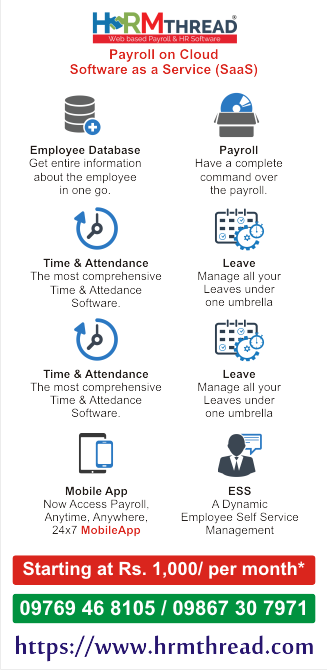|
Tax Saving Tips – Investments and Deductions Under Section 80C
Your hard earned income is subject to taxation under the Income Tax Act. You can save a part of your income as a tax deduction; thus reducing your total taxable income. Such tax deduction options are available under the various sections of it act. Section 80 c provides that Rs 1 lac per annum can be saved from being taxed by investing in such instruments:
§ Public Provident Fund (PPF)
§ National Savings Certificates (NSC)
§ Contributions to Employees Provident Fund (EPF)
§ Fixed Deposit (FD) with Banks having a lock-in period of five years
§ Equity Linked Savings Scheme (ELSS) of Mutual Funds
§ Unit Linked Insurance Plan (ULIP)
§ Life Insurance Premiums
§ Repayment of Housing Loan (Principal)
It is applicable for individuals irrespective of their tax bracket and annual income. These are the tips under this section that will help you save your tax from your income.
PPF PUBLIC PROVIDENT FUND
It is the risk free government tool with a lock in period of 15 yrs and is beneficial for those seeking long term investment. You can invest up to Rs 1lac in all at the current rate of 8.8%. . The interest earned here is not taxed. The minimum investment in PPF is Rs 500 per year and the maximum investment is Rs 1,00,000/- per year. It can be a lump sum investment or can be divided in to a 12 transaction per year. A special benefit that comes along is that in case of insolvency it will not be attached to the assets of the insolvent. PPF can be used for minors as well, who can avail benefit of the same when they turn 18.
NSC NATIONAL SAVING CERTIFICATES
Very secure since it is backed by the government. Interest rate for 5-year NSC delivers 8.6% whereas 10-year NSC offers 8.9%. Interest earned is subject to tax and there is no limitation on the amount of investment. NSC is eligible for use as a security in order to derive a loan from the banks. Minimum amount is Rs100.
EMPLOYEES PROVIDENT FUND
Employees provident fund is the deduction from the salary (minimum a 12%) made by the employer into a provident fund account. This deduction is mandatory on the earned income as an aid to both private and non pensionable public sector employees. A fraction of your monthly income is deducted and gets accumulated till the time employee attains the retirement age. After the age of 55, the employee can withdraw full amount at any time. Apart from monthly deduction the employee can contribute extra through VPF voluntary contributions.
FIXED DEPOSITS
In a Fixed Deposit Saving Scheme a certain sum of money is deposited in the bank for a specified time period with a fixed rate of interest. For tax free bank deposit under section 80c, lock in period of 5 yrs is a must and premature withdrawal is not allowed. The amount under this FD is deducted from the taxable income and the maximum permissible amount is Rs1 lac. This amount can be undertaken for a loan. A safe investment option beneficial for those who want to lock their money for long. However the interest received on such deposit is taxable.
EQUITY LINKED SAVINGS SCHEME (ELSS) OF MUTUAL FUNDS
This market linked investment comes up with a 3 year lock in period. ELSS is your helping hand in saving tax offering high returns. With low expenses, this option ensures a high liquidity and growth in long term. Withdrawing before a 3 year period is not allowed. Also ELSS returns are not guaranteed as they are market linked investments.
ULIP- UNIT LINKED INSURANCE PLAN
ULIP is the risk free investment option that lets you flexibly invest wherein part of the premium pay goes toward the sum assured and the balance will be invested in whichever investments you choose depending upon the scheme-equity, debt or a mix of the both. The premium that is paid under these schemes is considered under this section. It can be partly exposed to stock market. ULIP schemes come in insurance cover forms as well as investment options.
LIC PREMIUMS
This includes the premiums that you pay for the LICs or insurance policies under other private insurance companies. The policies ensuring life of self, spouse or any child are considered. Also, insurance premiums paid for parents, is covered for deduction under 80C. Thus, the total amount for all premiums from all eligible policies can be included as the deduction.
REPAYMENT OF HOUSING LOAN (PRINCIPAL)
Under section 80c , the principle component that you pay for your home loan is eligible for deduction. The yearly amount that is spent under the repayment of housing loan as the principal can be deducted from the taxable income.
Courstesy ©2013 Sensys Blog. All Rights Reserved.
|





Unknown
Fine information. This post is relevant for me to get the idea about how different schemes are helpful to save my tax. Thanks for sharing knowledge about various tax saving schemes and tips under Section 80C.
Prakash Consultancy Services
Thanks Jashn Sharma Further u can Put ur views & suggestion for my blogs
Unknown
This is the very good Tax Saving Investment which are helpful to save tax. Finally i got the different schemes from this blog and it is for me to save tax properly.
Prakash Consultancy Services
Thanks Kesar walia any more suggesstion are welcome for My Blogs